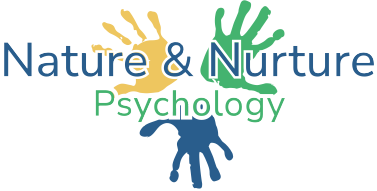If you have a child or are caring for a child who you feel may be autistic, it can be difficult to know what steps to take next. For parents and guardians of children who have experienced early attachment trauma, you may also be wondering whether their differences in certain areas may be linked to their early experiences and attachment insecurity, or neurodiversity. And sometimes, children can be autistic as well as experiencing the impact of early life experiences and trauma. In fact, we know that autistic children find it even harder to process early traumatic experiences, and this is why early identification is so important, not only for the self identity of the autistic person, but to help with understanding trauma through a neurodivergent lens.
What is Autism?
No two children with autism are exactly alike. Autism refers to a type of neurodivergence which is lifelong, and influences the way a person sees the world and interacts with it, and the people around them. Autism can result in numerous strengths and skills that non autistic people may not have, however, it also can present challenges for children and young people, and environments like school can present significant anxieties that the young person can’t control. The list below is not exhaustive, but captures some of the skills and differences that autistic people may experience:
– Attention to detail and pattern seeking: Autistic people can be excellent pattern recognisers, and can notice small details. Autistic people can also have intense hyperfocus on things that they find interesting – for example, an autistic person with intense hyperfocus on maths, may lose themselves for hours in their maths problems, and not think to stop to eat or go to the toilet. This skill is a strength for many jobs and tasks.
– Honesty – autistic people can be ‘direct communicators’ stating things how they are, and cutting out the social pleasantries when not needed. Autistic people tend to be direct and sincere, and have high ethical standards. At school, this might look like finding it hard when others break the rules.
– Comfort in repetition – autistic people can find comfort in patterns, and doing things repetitively. This can vary from child to child, and can look different between boys and girls. One person may find repetitive tapping movements comforting, whereas another person may find watching the same film over and over again for hours on end very pleasing. Some autistic people have remarkable memory for facts and details, especially if it is linked to a passionate interest. Some autistic children value sameness, and like wearing the same clothes over and over, and only like a certain brand of chicken nugget and find it hard to deviate from this without feeling very anxious.
– Sensory sensitivities – autistic people are sensitive to the world around them, and they can experience senses quite intensely. This can lead to sensory avoidance, or sensory seeking, for example having a strong dislike of certain unpredictable sounds like the hand dryer, or seeking out certain textures to touch.
– Reliability – Autistic people can be committed to certain routines and doing things in a certain order. Some people may very rigidly need to stick to these routines, whereas others may not.
– Passions – Autistic people who have strong hyper focus skills, may have various passions that may change over time. There can be an ability to do a deep dive on topics that interest them, spending hours pursuing this. With children, it may be difficult to ask them to refocus when they are in their deep dive into an interest.
– Communication style – Relationships for autistic people can tend to be incredibly sincere, with no ulterior motives, and this can lead to distress when neurotypical people relate in a different way that may not make sense. Autistic communication style may be direct, and honest. Sometimes people with an autistic communication style may find it hard to understand a neurotypical communication style, and vice versa. Both styles of communication are equally valid. Some autistic people may engage in an intense sharing of information, and may not feel at ease with turn taking in conversation, preferring to ‘front load’ what they are trying to get across.
Key Points
- Autism is a wonderful part of neurodivergence, and can bring a mix of skills and strengths, but also difficulties interacting with a world that is mainly geared towards non autistic people.
- Children who have experienced early attachment trauma, may present with traits similar to autism. For example, a strong need to stick to set routines can stem from a need for stability. In depth assessment can help identify both attachment insecurity and neurodivergence such as autism.
- Some autistic children may appear to struggle in many areas including their daily functioning. For some children, alongside being autistic, may also have an intellectual disability which affects learning and skills of daily living. Further assessment is needed to see whether intellectual disability is having a significant impact on a child’s life.
- Autistic girls present differently to boys, and girls tend to do a lot more social masking, and attempting to fit into neurotypical social groups, even when this does not feel natural to them. This can result in high levels of anxiety and a poor sense of self.
- If you are unsure whether your child may be autistic, please get in touch and speak with one of our team who may be able to assist. We routinely undertake autism assessments with children who are adopted or under special guardianships.
Dr Sarah Saveker, Clinical Psychologist / Director of Nature and Nurture Psychology
If you have any further questions, or to find out more, please contact info@natureandnurturepsychology.com or visit the website www.natureandnurturepsychology.com or take a look at our instagram @naturenurturepsychology for more tips and information

